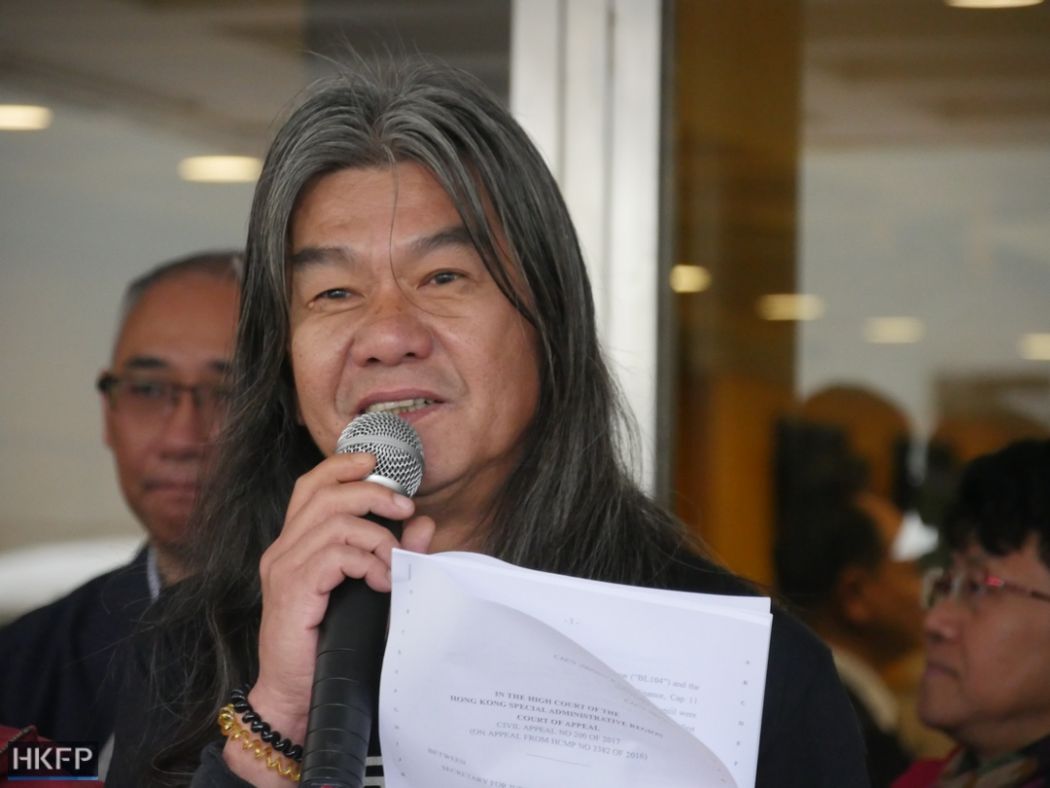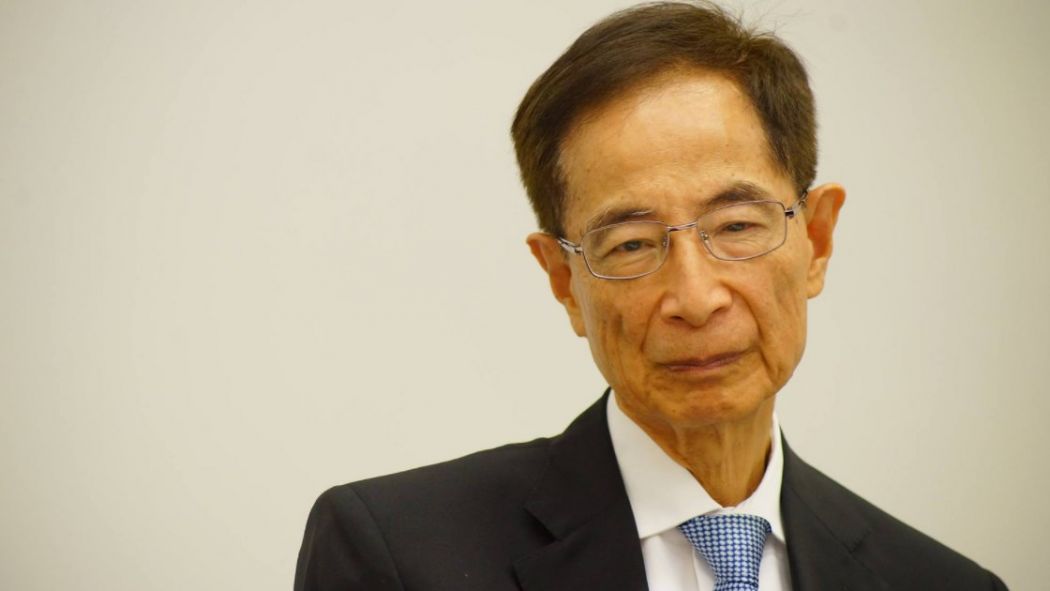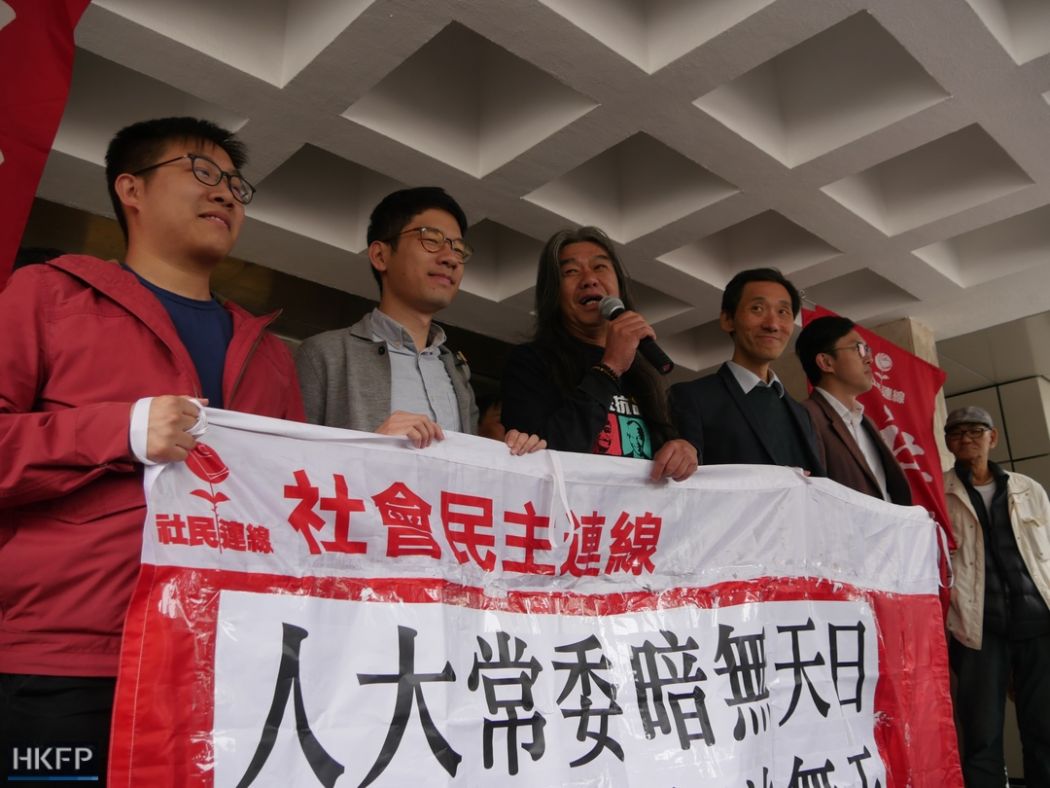The Hong Kong Court of Appeal has ruled against ousted lawmaker “Long Hair” Leung Kwok-hung, saying on Friday that the lower court was correct in disqualifying him over the 2016 oath-taking controversy.
Leung told reporters in response that he will take his appeal to the city’s highest court.

Leung was among four pro-democracy lawmakers – along with Edward Yiu, Nathan Law and Lau Siu-lai – who were disqualified by the Court of First Instance in July 2017. The government took them to court after the four protested during their swearing-in ceremonies.
In their 46-page ruling on Friday, the appeal judges dismissed all seven grounds of appeal raised by Leung’s lawyer, and ordered Leung to pay the government’s legal costs.
Speaking after the judgment was handed down, Leung said the result was unreasonable but not unexpected. He added that the appeal court had treated his case dismissively – he described the court as “swatting him away” – and previously rejected his application to summon an expert witness on China law.

As for his appeal, Leung said he hoped the two overseas non-permanent judges who sit on Court of Final Appeal hearings will be “more courageous.”
On October 12, 2016, Leung brought a yellow umbrella that symbolised the 2014 pro-democracy Umbrella Movement to the legislature’s oath-taking ceremony. He said before taking the oath: “I want genuine universal suffrage. Leung Chun-ying, step down.”
Leung added words to the oath when he read it aloud, and afterwards did not sign it. He then tore up a prop representing the August 31, 2014 decision by the Chinese National People’s Congress which denied open elections for the city’s leader.

In his first instance judgment in 2017, Justice Thomas Au said that Leung’s actions during oath-taking “lacked the required dignity and solemnity.”
NPCSC Interpretation
The local court judgments came after a controversial interpretation of the Basic Law issued by China’s top legislative body in November 2016. It stipulated that oaths should be taken “accurately, completely and solemnly” without any modifications to the wording, while retaking of oaths was not allowed.
Leung, who was represented by barrister Martin Lee, argued in court that the NPCSC interpretation was not valid or binding on Hong Kong courts and did not have retrospective effect.
However, the judges rejected the argument wholesale, saying that “most if not all of Mr. Lee’s arguments are flatly contradicted by an array of well-established authorities decided by the Court of Final Appeal and the Court of Appeal.”

“The Interpretation, properly understood, states what the Hong Kong law has always been,” the judges said, adding that this means there was no problem of retrospective application.
At the hearing, Lee also tried to argue that past oath-taking ceremonies had allowed protests, and Leung had a “legitimate expectation” that the practice would be continued. He also argued that the local law on oath-taking did not provide sufficiently clear guidance on the ceremony.
Both arguments were rejected by the appeal court.
Before entering the courthouse, Leung appeared with supporters from the League of Social Democrats, as well as his former Legislative Council colleagues Nathan Law and Edward Yiu.

“If judges cannot protect the interests of the people, they should go home and eat sweet potatos,” Leung and the group chanted.
After the initial rulings, ex-lawmakers Law and Yiu decided not to appeal their cases because the legal costs were too high. Lau and Leung decided to appeal, but Lau later withdrew her application, citing long delays in court scheduling, cost and psychological pressure.
